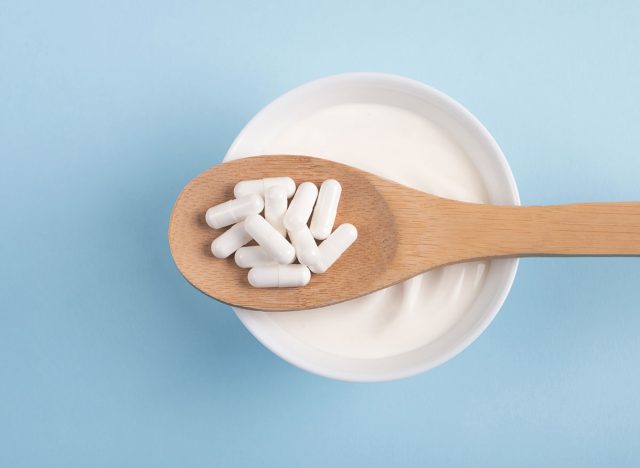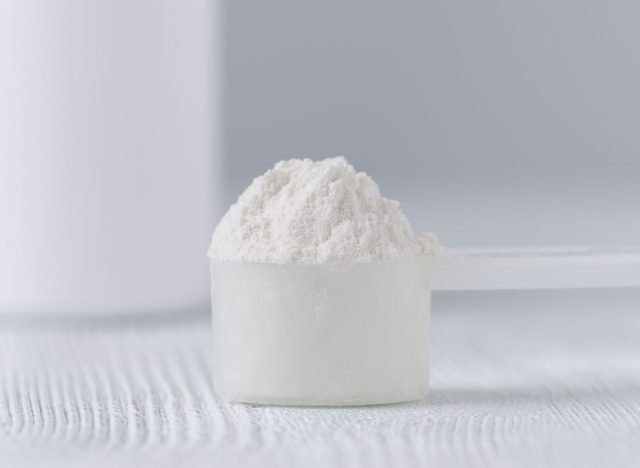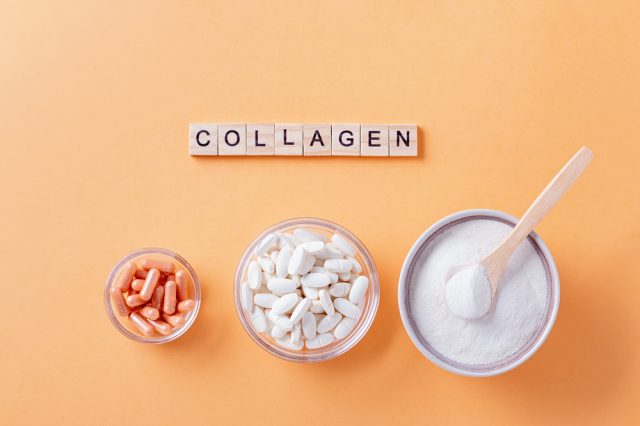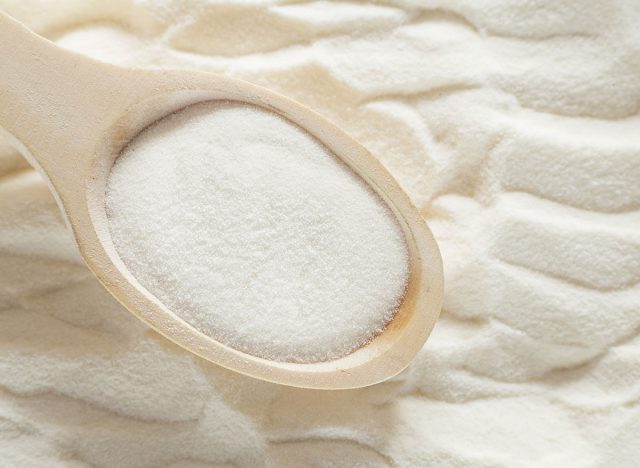
[ad_1]
During my 26 years as a Physician of Integrative and Functional Medicine, I was one of the first doctors to recognize the profound importance of the microbiome. The microbiome is an entire community of microorganisms that are living within our body including both “good” bacteria, which are beneficial, as well as strains of pathogenic microorganisms, which if not kept in check, can be detrimental to our health. It’s estimated that approximately 10-100 trillion symbiotic microorganisms live within our bodies, primarily in the digestive tract. The microbiome is crucial to our health – it plays a significant role in our ability to appropriately digest and assimilate nutrients, it impacts our immune system and mood, as well as our metabolism and ability to maintain a healthy weight. As we age, the biodiversity of our gut microbiome decreases, which can put us at an increased risk of a number of conditions, including cognitive decline and conditions associated with it, like Alzheimer’s disease. Eating a healthy diet and making good lifestyle changes can aid in keeping our microbiome balanced but supplements also play a key role in keeping our microbiome healthy by addressing and reversing any imbalances in our gut microbiota due to medications or various health conditions. Read on to find out more—and to ensure your health and the health of others, don’t miss these Sure Signs You’ve Already Had COVID.

Probiotics are the primary supplement to think about when addressing gut health and microbiome imbalances as they contain live microorganisms, which when consumed, aid in repopulating the GI tract with “good” bacteria. Different strains of bacteria provide different benefit; however, for general gut health or to counter any imbalances due to medications like antibiotics, a good broad-spectrum probiotic containing a wide variety of strains is a good option.
Although a more targeted approach is recommended when using probiotics to treat a particular condition, there are several things to consider when selecting a probiotic supplement for general use, including brand quality, high CFU count, survivability and strain diversity, prebiotics and supplementary ingredients, stability and organism types, and “live with active cultures,” which are better than “made with active cultures.”

Saccharomyces boulardi is a type of probiotic, but given its very important and specific benefits to gut health, it’s important to break it out from just a general probiotic supplement. It’s a transient species of yeast, meaning it does not populate the gut; however, it promotes the growth of “good” bacteria and helps fend off pathogenic bacteria. It has been shown to be naturally anti-inflammatory and helps to promote healing of the gut. It’s widely known that chronic inflammation is the root cause of many health conditions, and chronic inflammation localized to the GI tract can lead to “leaky gut.” This happens when the intestinal mucosa which lines the GI tract becomes damaged over time, allowing small food particles, bacteria, and other toxins to leak out of the GI tract and into the bloodstream, thereby causing an immune response. This also affects our ability to properly digest food and assimilate nutrients, which can lead to metabolic imbalances. Saccharomyces boulardi aids in directly healing the gut and reducing inflammation. It also boosts IgA levels. IgA, or Immunoglobulin A, is one of the main antibodies that line the GI tract to protect us from infection. By boosting our levels of IgA, we further strengthen our immune system and the health of our GI tract.

Prebiotics are crucial to gut health and healing the GI tract, including the reversal of leaky gut syndrome. They are essentially the food that feeds the “good” bacteria in the gut and keeps them healthy. They are specialized plant fibers, often found in fruits and vegetables, particularly those that contain fiber or resistant starch. Prebiotics are not digestible by the body and therefore become food for the microbes in your gut. You can get prebiotics from a few food sources. Asparagus, garlic, Jerusalem artichokes, jicama and onions all contain Inulin, which improves the metabolism of fats, makes you feel full, aids in efficient digestion and the production of B vitamins and Vitamin K. Carrots, leeks, radishes, tomatoes and turmeric contain Arabinogalactans, which improves the microbiome diversity, fights inflammation, aids the immune system and has antibacterial properties.

L-glutamine is a type of amino acid which has been shown to heal the intestinal wall. Chronic inflammation in the GI tract can lead to damage to the gut wall. Within the mucosal lining of the GI are what’s called tight junctions. They act as a barrier allowing certain things to pass through the lining and into the bloodstream, like nutrients. However, if the GI tract becomes damaged, these tight junctions break down and allow larger particles to break through, which can result in an immune response. L-glutamine has been shown to repair these tight junctions, thereby restoring the health of the GI tract. It’s a key supplement in addressing “leaky gut” and healing the mucosal lining of the intestines.

Collagen is a type of structural protein and includes a large amount of glutamine in addition to other amino acids. Collagen is the most abundant protein in the body and makes up nearly 90% of our connective tissue and bone mass, along with 70% of our skin. As we age, we produce less collagen. While collagen supplementation is often associated with anti-aging products, it also provides tremendous benefits for GI health. Collagen regulates the production of gastric juices and stomach acid, can heal ulcers, aid digestion and heal the intestinal mucosa.
The key to collagen supplementation is the quality of the product and the amount taken. Many supplements don’t provide adequate levels per serving. Most studies indicate that at least 10g per day are required to see results. Bone broth is a simple, healthy source of collagen and a good addition or alternative to supplementation.

Licorice Root has been shown to control H. pylori, which is a type of bacteria that causes ulcers, as well as inflammation. It contains glycyrrhizin which is naturally anti-inflammatory and can aid in the healing of the gut lining. It can also aid in acid reflux, heartburn and indigestion.

Acacia fibergum comes from the sap of the Acacia tree and is native to Africa. It’s rich in fiber, which is broken down into short-chained fatty acids (SCFAs) that are crucial to the health of the gut microbes. There are several metabolites that are crucial for gut health. The main food component that impacts the gut microbiome composition and activity is fiber. Our ancestors ate about 100g of fiber per day whereas the typical American often contains much less – it’s recommended to get at least 25g per day. The bacteria in our gut ferment this fiber, resulting in the production of short-chained fatty acids (SCFAs) that fuel them – namely, acetate, propionate and butyrate – which have recognized health-promoting activities, such as anti-inflammatory, anticarcinogenic, and immune-regulatory functions. The fiber contained in acacia fibergum helps to boost SCFA levels, which aids in the health of the gut microbes and also aids in healing the intestinal lining.
These supplements are generic recommendations and individuals should take a targeted approach depending on their specific condition. It’s highly recommended to receive an evaluation by a Functional Medicine Practitioner. From there, they can assist you with treatment options. And to protect your life and the lives of others, don’t visit any of these 35 Places You’re Most Likely to Catch COVID.
Dr. Raphael Kellman is an internist and functional medicine physician and founder of the Kellman Wellness Center in New York City. He is a graduate of Albert Einstein College of Medicine and pioneered a groundbreaking new brand of medicine and healing called “Microbiome Medicine. Dr. Kellman is the author of the best-selling “Microbiome Diet,” “The Microbiome Breakthrough,” and his latest release, “Microbiome Thyroid.” Follow him on Twitter: @doctorkellman
[ad_2]
Source link